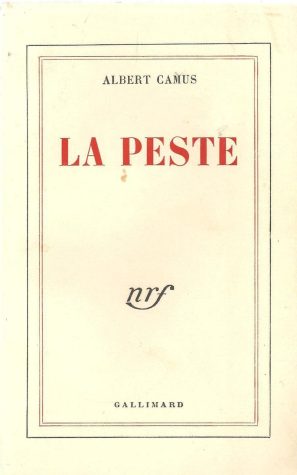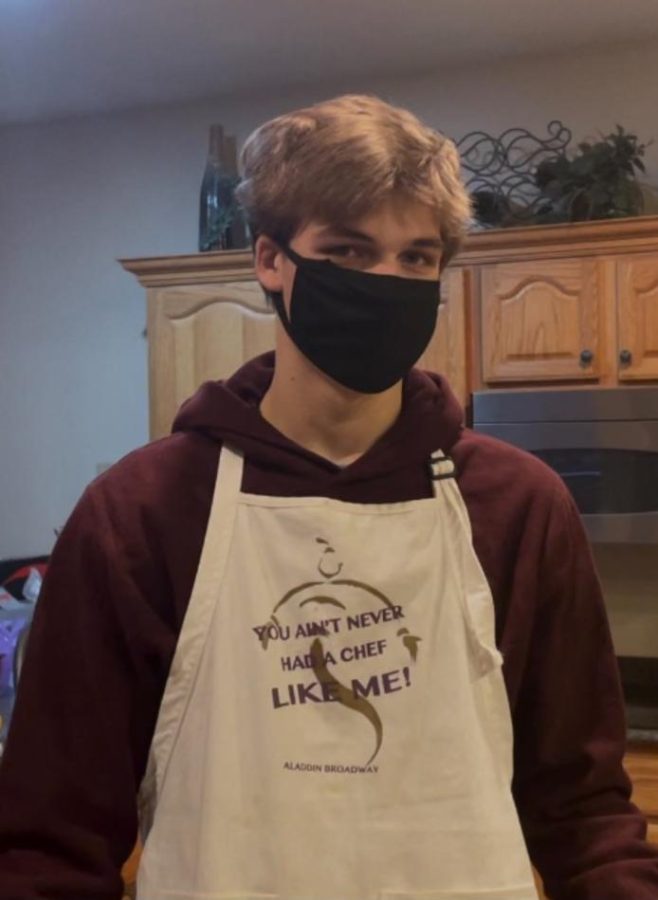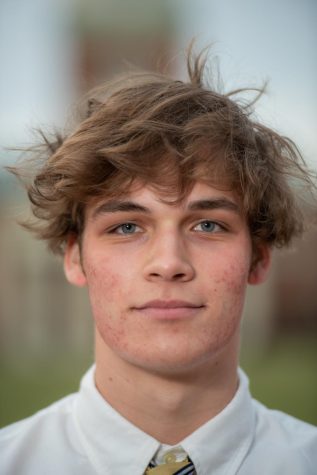A COVID-19 Odyssey: constructing a new me
Life Editor Adam Coil shares his memories from the early days of COVID
Adam Coil, donning a mask and apron, poses during the COVID pandemic.
March 16, 2023
When the pandemic hit, copious amounts of free will were heaped upon me. The 11 hours of the day dedicated to school and sports evaporated into thin air, and the only thing resembling a temporal land marker in sight was my daily walk with my grandmother’s dog and my mom. Like most kids, though, all this time and freedom had a paradoxical effect — it left me with less motivation or sense of direction than I ever had before.
If I had to give one word to describe those dreary months of 2020, it would be futility. Indeed, it felt impossible to justify any action. Exercising was a waste of time because baseball season was canceled and soccer probably would be, too. My birthday passed by without so much as a passing wave. Schoolwork was somehow less rigorous and demanding than it had been while in person. Travel was simply not an option. Happiness was rare to come by, even more difficult to retain — it simply didn’t feel right.
I felt like a willing victim of time — an apathetic hostage on a ship that was going nowhere.
Luckily for me, though, I had one of those English teachers that people in movies or on TV talk about — the kind of criminally underpaid superstar educator that holds up every public school system. At one point or another, a book club was established and “The Plague” by Albert Camus fell into my hands.
I read the salubrious novel at an incorrigibly slow pace — weeks would go by with only five or six pages of progress being made. This went on for months. Finally, though, the fictional plague passed, Dr. Rieux survived and the town of Oran began to live something like a new abnormal, doing the most to maximize life in honor of the dead. I had done it; I had finished a book. Furthermore, I understood the book. I felt an emotional connection to the book. I cried when I finished it because there was something like life teeming in those worn-down pages, and they were speaking directly to me.
The parallels were undeniable. Like the novel’s protagonist, I was living amidst a deadly pandemic. I was overwhelmed by the feeling of my own ineptitude and futility, and I was searching for a sense of self in the midst of quiet chaos. Poetically, though, I was able to derive a feeling of purpose and forge a path forward through the philosophies of the characters in the novel.
One of the most famous quotes is delivered by Dr. Rieux as he is in the midst of the plague: “I have no idea what’s awaiting me, or what will happen when this all ends. For the moment I know this: there are sick people, and they need curing.”
The gist of the book resonated strongly with 17-year-old me because it empowered me to take action even when I could not logically trace a reason for it. It told me that it was okay to wander in the dark if the intentions were pure.

After finishing “The Plague,” I kept reading. Over time, it became easier to read for long stretches and get lost in a story world. I was able to explore experimental and laborious prose with increasing ease. I had found something that could satiate me and strengthen my mind. I began to start writing a little myself.
Most importantly, though, in reading and writing, I had found something that needed no justification. I found something that seemed to be inherently good, so long as it felt right to me.
This was my key insight from all of the stress, lethargy and loneliness of the COVID-19 pandemic — that, in life, we need activities and duties which become a part of us. We need to devote our time and energy to certain things without any sort of explanation other than it makes us feel good and makes living worthwhile.
Foucault once said, “What strikes me is the fact that in our society, art has become something which is related only to objects and not to individuals, or to life… Why should the lamp or the house be an art object, but not our life?” This is a question that I believe we should be asking ourselves right now more than ever. When everything is stripped away, can we find the sublime beauty that we all need in ourselves — in what we do every day?
I feel extremely confident that I would not have become an English major if the pandemic hadn’t happened. Consequential events leave us no choice but to take a hard look at ourselves and ask the difficult questions that get pushed down the queue by the tedious monotony of daily life. Of course, I am not in any way glad that the pandemic happened, as nothing can justify the immense amounts of suffering that took place, but I do believe that it is the responsibility of the lucky ones who make it through dark times to learn from them and extract as much as possible from the life before them. Whatever that may entail.
“But what does it mean, the plague? It’s life, that’s all.”















